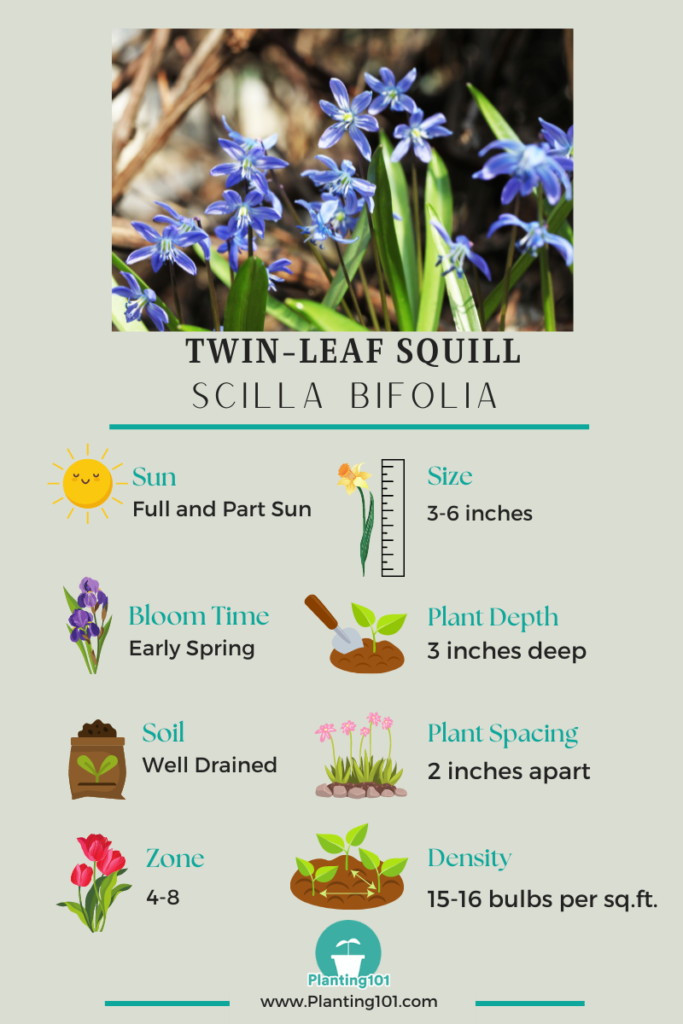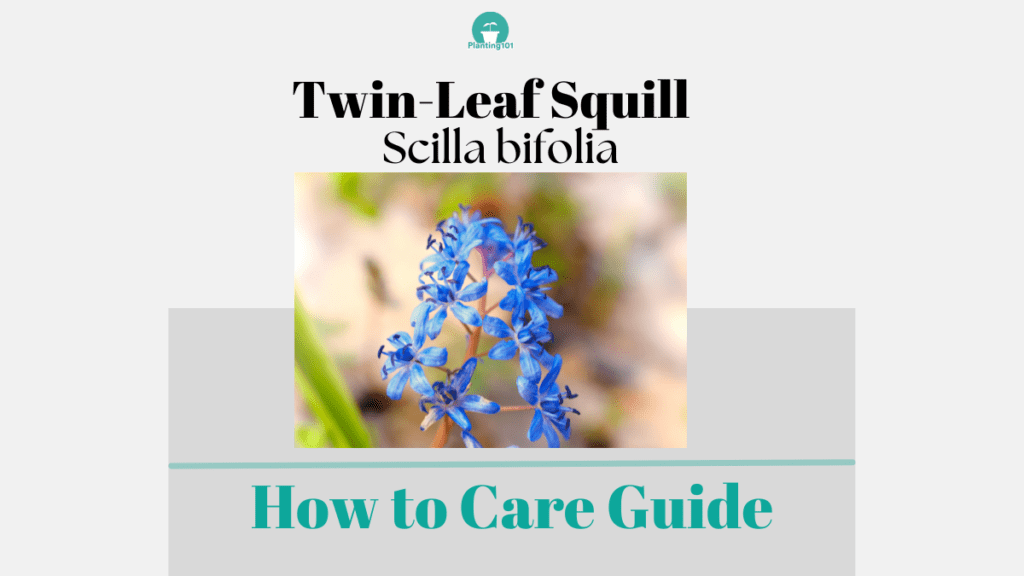Twin-Leaf Squill (Scilla bifolia) is a 3 to 6 inch flowering bulb with two linear leaves and purple blue starry flowers in early spring. The 1 to 1.5 inch wide flowers are held in loose, one-sided racemes with up to ten blooms on each side.
Twin-Leaf Squill Infographic

Twin-Leaf Squill Basics
| Name | Twin-Leaf Squill |
| Botanical Name | Scilla bifolia |
| Flower Color | Blue |
| Height | 3-6 inches |
| Sun | Full or Part |
| Soil | Well drained |
| Bloom Time | Early Spring |
| Zone | Zones 4 to 8 |
| Plant Depth | 3 inches deep |
| Plant Spacing | 2 inches apart |
| Density | 15-16 per sq. ft. |
Twin-Leaf Squill (Scilla bifolia): Other Names
Scilla bifolia is also called Alpine Squill and Two-Leafed Squill.
Twin-Leaf Squill (Scilla bifolia): Size
Scilla bifolia grows to 3-6 inches tall.
Are Twin-Leaf Squills (Scilla bifolia) Deer Resistant?
Twin-Leaf Squills are deer resistant.
Where to Plant your Scilla bifolia
Scilla bifolia should be planted in well-drained soil. The best place to plant it is in full light. Make sure the plant gets full sun in the spring if it’s planted under deciduous trees that get partial to full shade. When your Twin-Leaf Squill is actively growing, it needs plenty of sunlight.
| Sun | Full or Part |
| Soil | Well drained |
How to Plant Twin-Leaf Squill Scilla bifolia
Plant the Twin Leaf Squill bulbs in the fall, 3 to 4 inches deep in the ground and 2 inches apart. Plant them in drifts for the maximum impact; if you just plant one or two here and there, they’ll get lost in the spring garden. While planted in clusters of 20 to 50 bulbs or more, they look spectacular.
How Many Twin-Leaf Squill Bulbs to Plant in a Flower Bed?
You can plant 15-16 per sq. ft. Twin-Leaf Squill bulbs per square foot. Use the Twin-Leaf Squill calculator below to calculate how many bulbs you need for your garden.
How to Propagate Twin-Leaf Squill Scilla bifolia
Plants freely produce offsets and also self-sow. They’re great for naturalizing, and if left alone, they’ll grow into enormous, showy colonies. In early summer, divide the clumps and separate the offsets and seedlings by digging and dividing the clumps.
You May Also Be Interested In: How to Take Care of Your Blue Squill (Scilla siberica Infographic)

